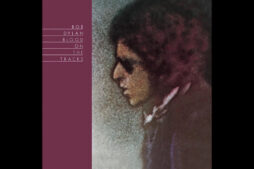Neil Young – On The Beach (Vinyl) Original Japanese Pressing
Reprise Records (1974)
$140.00
Super Rare Actual 1974 Japanese First Pressing Still In Top Condition! Has The Beautiful “Wallpaper” Cover. Includes 4-Page Insert With Lyrics.
1 in stock
CompareProduct Description
Super Rare Actual 1974 Japanese First Pressing Of Great Neil Young LP ~ Still In Top Condition! Has The Beautiful “Wallpaper” Cover (The Umbrella Floral Design Printed Inside The Sleeve). Includes 4-Page Insert With Lyrics In English.
Condition – Vinyl: NEAR MINT! Couple of very light surface marks, which are not audible at all. So well preserved for almost 50 years ~ sounds terrific!
Condition – Cover: EXCELLENT! Minor shelf wear. No writing, no stickers, no foxing…. super clean!
Japanese vinyl pressings are highly sought after by audiophiles and collectors, due to their premium sound quality and beautifully presented packaging. The sonic quality of Japanese records is regarded as the best in the world. No wonder all the original Mobile Fidelity Sound Lab records were pressed in Japan! The covers are printed on better quality heavy stock paper too. Near Mint condition original Japanese pressings are becoming scarcer ~ and therefore more collectable and valuable every year.
Side 1:
Walk On
See The Sky About To Rain
Revolution Blues
For The Turnstiles
Vampire Blues
Side 2:
On The Beach
Motion Pictures
Ambulance Blues

![Neil Young - On The Beach (Vinyl) [Original Japanese Pressing]](https://www.rockstuff.co.nz/wp-content/uploads/2023/03/Neil-Young-On-The-Beach-P8421R-Japan-ROCKSTUFF-Vinyl.jpg)
![Neil Young - On The Beach (Vinyl) [Original Japanese Pressing] - Image 2](https://www.rockstuff.co.nz/wp-content/uploads/2023/03/Neil-Young-On-The-Beach-P8421R-Jap-ROCKSTUFF-Floral-Inside.jpg)
![Neil Young - On The Beach (Vinyl) [Original Japanese Pressing] - Image 3](https://www.rockstuff.co.nz/wp-content/uploads/2023/03/Neil-Young-On-The-Beach-P8421R-Japan-ROCKSTUFF-B.jpg)
![Neil Young - On The Beach (Vinyl) [Original Japanese Pressing] - Image 4](https://www.rockstuff.co.nz/wp-content/uploads/2023/03/Neil-Young-On-The-Beach-P8421R-Japan-ROCKSTUFF-Label.jpg)
![Led Zeppelin - IV (Vinyl) [Japanese Pressing]](https://www.rockstuff.co.nz/wp-content/uploads/2024/11/Led-Zeppelin-IV-P-8166A-Japan-ROCKSTUFF-Vinyl-254x169.jpg)
![Stephen Stills - Manassas (2LP Vinyl) [Japanese Original Pressing]](https://www.rockstuff.co.nz/wp-content/uploads/2016/01/Stephen-Stills-Manassas-P-5053A-Jap-2LP-ROCKSTUFF-Vinyl-254x169.jpg)

![Deep Purple - In Rock (Vinyl) [Japanese Pressing]](https://www.rockstuff.co.nz/wp-content/uploads/2025/11/Deep-Purple-In-Rock-P10108W-Jap-ROCKSTUFF-Vinyl-254x169.jpg)

AMG –
On the Beach was savage and, ultimately, triumphant. "I'm a vampire, babe," Young sang, taking bites out of various subjects... Following the 1973 Time Fades Away tour, Neil Young wrote and recorded an Irish wake of a record called Tonight's the Night and went on the road drunkenly playing its songs to uncomprehending listeners and hostile reviewers. Reprise rejected the record, and Young went right back and made On the Beach, which shares some of the ragged style of its two predecessors. But where Time was embattled and Tonight mournful, On the Beach was savage and, ultimately, triumphant. "I'm a vampire, babe," Young sang, and he proceeded to take bites out of various subjects: threatening the lives of the stars who lived in L.A.'s Laurel Canyon ("Revolution Blues"); answering back to Lynyrd Skynyrd, whose "Sweet Home Alabama" had taken him to task for his criticisms of the South in "Southern Man" and "Alabama" ("Walk On"); and rejecting the critics ("Ambulance Blues"). But the barbs were mixed with humor and even affection, as Young seemed to be emerging from the grief and self-abuse that had plagued him for two years. But the album was so spare and under-produced, its lyrics so harrowing, that it was easy to miss Young's conclusion: he was saying goodbye to despair, not being overwhelmed by it.
Geoff –
Easily one of Neil Young’s BEST albums, the BRILLIANT ‘On the Beach’ is bluesy & dark, it's Neil wailing from the soul with his voice and guitar! Easily one of Neil Young’s BEST albums, I play the BRILLIANT ‘On the Beach’ very regularly! It's bluesy, it's dark, it's Neil wailing from the soul with renewed strength in his voice, while stretching out on guitar! For decades, Young blocked the LP from being released on CD, as he didn't feel the format captured the live, open sound of the vinyl. ‘On the Beach’ is a holy grail in the extensive Neil Young catalogue and is well worth seeking out!